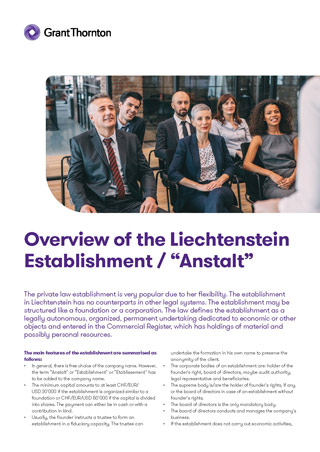Services
More security, more trust.
-
Audit Financial Services
More security, more trust: Audit services for banks and other financial companies
-
Audit Industry, Services, Institutions
More security, more trust: Audit services for national and international business clients
Competent advice on all national and international tax issues.
-
Corporate Tax
National and international tax consulting and planning
-
Individual Tax
Individual Tax
-
Indirect Tax/VAT
Our services in the area of value-added tax
-
Transfer Pricing
Our transfer pricing services.
-
M&A Tax
Advice throughout the transaction and deal cycle
-
Tax Financial Services
Our tax services for financial service providers.
Good advice makes things easier.
-
Financial Services
Consultancy services that generate real added value for financial service providers.
-
Advisory IT & Digitalisation
Generating security with IT.
-
Forensic Services
Nowadays, the investigation of criminal offences in companies increasingly involves digital data and entire IT systems.
-
Regulatory & Compliance Financial Services
Advisory services in the area of financial market law.
-
Transaction Services / Merger & Acquisition
Successfully handling transactions with good advice.
-
Legal Services
Experts in commercial law.
-
Trust Services
We are there for you.
-
Business Risk Services
Sustainable growth for your company.
External services that free up space for what is really important.
-
Abacus
Grant Thornton Switzerland Liechtenstein has been an official sales partner of Abacus Business Software since 2020.
-
Accounting Services
We keep accounts for you.
-
Payroll Services
Leave your payroll accounting to us.
-
Real Estate Management
Leave the management of your real estate to us.
With our unique culture and opportunities, our organisation is a place where you can grow. Wherever you are in your career, we help you to make a difference...
With us you will find a dynamic environment that supports your further growth and ambitions.
Launch your career with us!
-
Apprentices
Career with an apprenticeship?!
Job offers for experienced professionals.
Our treatment of your data and your rights
Information pursuant to Article 13 of the European General Data Protection Regulation (GDPR) and the Liechtenstein...
Vacancies

The private law establishment is very popular due to her flexibility. The establishment in Liechtenstein has no counterparts in other legal systems. The establishment may be structured like a foundation or a corporation. The law defines the establishment as a legally autonomous, organized, permanent undertaking dedicated to economic or other objects and entered in the Commercial Register, which has holdings of material and possibly personal resources.
The main features of the establishment are summarised as follows:
- In general, there is free choice of the company name. However, the term “Anstalt” or “Establishment” or “Etablissement” has to be added to the company name.
- The minimum capital amounts to at least CHF/EUR/USD 30’000 if the establishment is organized similar to a foundation or CHF/EUR/USD 50’000 if the capital is divided into shares. The payment can either be in cash or with a contribution in kind.
- Usually, the founder instructs a trustee to form an establishment in a fiduciary capacity. The trustee can undertake the formation in his own name to preserve the anonymity of the client.
- The corporate bodies of an establishment are: holder of the founder’s right, board of directors, maybe audit authority, legal representative and beneficiaries.
- The supreme body is/are the holder of founder’s rights, if any, or the board of directors in case of an establishment without founder’s rights.
- The board of directors is the only mandatory body.
- The board of directors conducts and manages the company’s business.
- If the establishment does not carry out economic activities, at least one member of the board of directors must hold a professional trustee’s licence.
- The audit authority is only required if the establishment conducts a business run on commercial lines or if the description of the purpose is included in the articles of association.
- The legal representative is authorized to receive all communications of the establishment.
- If neither the articles nor the regulations provide for beneficiaries, the law presumes that the holder of the founder’s rights is the beneficiary.
- The establishment can be terminated if there is a ground for dissolution (according to articles of association, judgement, law).
A brief overview of fiscal aspects of an establishment:
- Establishments are generally subject to unlimited corporate income tax at a flat rate of 12.5%. However, the Liechtenstein tax law provides for several exemptions: Amongst others, dividends and capital gains from the sale of shares are tax exempt, as well as income from real estate and permanent establishments which are located abroad. Additionally, a notional interest deduction of currently 4% on the company’s equity (after adjustments for tax purposes) is granted. Therefore, the effective tax rate is for most establishments less than 12.5%.
- If a legal person does not carry out economic activities and serves the private asset management of an individual (or a family), it may apply for the status of a Private Asset Structure (PAS). If the Liechtenstein tax authority approves the application, the legal person is only liable to minimum tax, which currently amounts to CHF 1’800.
Download article as PDF


